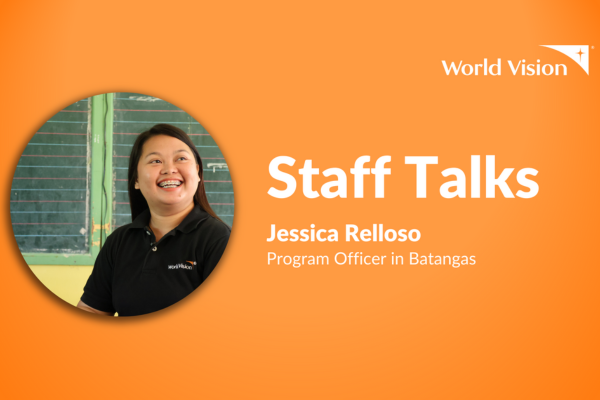The multiplier effect of generosity
In a village in Kidapawan City in North Cotabato, community members are combatting malnutrition with generosity. The village, which recorded 21 malnourished children below two years old in 2018, has made a significant decrease to 11 malnourished children in 2019
“Thanks to the efforts of everyone in the barangay, we’re nearing our goal of zero malnutrition case. Parents are pro-active in helping their children, health workers and volunteers are tirelessly working to monitor the children’s well-being and the rest of the community members are giving whatever they can to contribute,” shares barangay health worker Liezel.

On weekends, World Vision-sponsored children Ian, 7 and Ivan, 9, help their mother Flor in taking care of the native chickens. They also help in harvesting eggs. The livelihood project gives their parents, Flor and Adonis extra income, allowing them to provide for the needs of their children. Both Ian and Ivan enjoys eating dishes with native chicken eggs.
The egg giving project
In 2018, at least 50 families received 10 native chickens (8 hens and 2 roosters) each from World Vision after going through a training on native chicken raising. The initiative was meant to help augment the families’ income so parents can provide for the needs of their children. But they, who experienced generosity, also took it as an opportunity to give back.
Every week since the project started, each of the 50 families committed to give an egg to the barangay’s feeding program for children below two years old. The group consistently provides a minimum of 150 pieces of eggs every month.
“I see to it that I give at least four eggs to the health center every month. That’s my family’s share in helping curb malnutrition,” says Flor, whose family is one of those who received 10 native chickens. A mother of two, Flor is a day care worker, receiving a stipend of P2000 every month while her husband, Adonis, is a tricycle driver who earns at least P6000.
With proper training, Flor and her husband were able to grow the number of their chickens. Every month, the family has an additional income of at least P2000, which comes from selling chicks, live chicken or native eggs.
“We also help Mama feed the chickens and in return, we eat a lot of the eggs,” says 7-year old Ian, a World Vision sponsored child.
In the same village is 35-year old Hazel, a mother of three. Two months ago, her youngest child, Lexi, was at least half a kilo underweight for her age. Since joining the feeding program, Lexi has made progress and now weighs 8.2 kilograms which is the ideal weight for her age.
“I am thankful that we are also benefiting from World Vision’s works in our community, even if my children are not sponsored. I trust that as Lexi nears the completion of the 120-day program to rehabilitate her, she will be healthier,” shares Hazel.
Aside from giving to the barangay health center, the native chicken growers also give fresh eggs for the feeding program in the day care school.
“News like that of Lexi encourages us to keep doing what we’re doing. Like Hazel, we are also parents who want our children to grow healthy and it is a privilege to be able to share the same generosity that our children have been receiving through World Vision,” says Flor.









